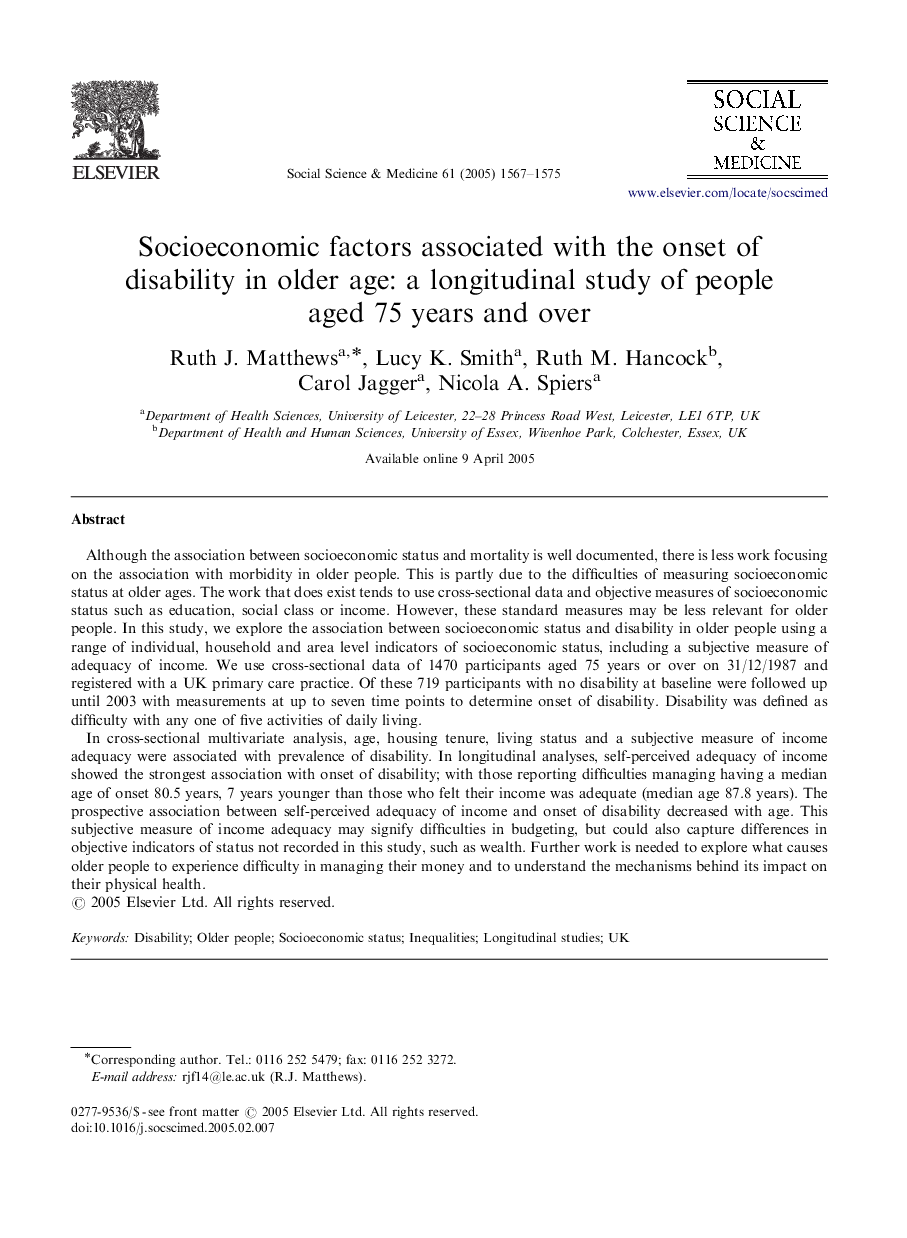| Article ID | Journal | Published Year | Pages | File Type |
|---|---|---|---|---|
| 10472443 | Social Science & Medicine | 2005 | 9 Pages |
Abstract
In cross-sectional multivariate analysis, age, housing tenure, living status and a subjective measure of income adequacy were associated with prevalence of disability. In longitudinal analyses, self-perceived adequacy of income showed the strongest association with onset of disability; with those reporting difficulties managing having a median age of onset 80.5 years, 7 years younger than those who felt their income was adequate (median age 87.8 years). The prospective association between self-perceived adequacy of income and onset of disability decreased with age. This subjective measure of income adequacy may signify difficulties in budgeting, but could also capture differences in objective indicators of status not recorded in this study, such as wealth. Further work is needed to explore what causes older people to experience difficulty in managing their money and to understand the mechanisms behind its impact on their physical health.
Related Topics
Health Sciences
Medicine and Dentistry
Public Health and Health Policy
Authors
Ruth J. Matthews, Lucy K. Smith, Ruth M. Hancock, Carol Jagger, Nicola A. Spiers,
